Gardening for Seniors – All Year Round
in Active AgingWritten by PARC Retirement Living
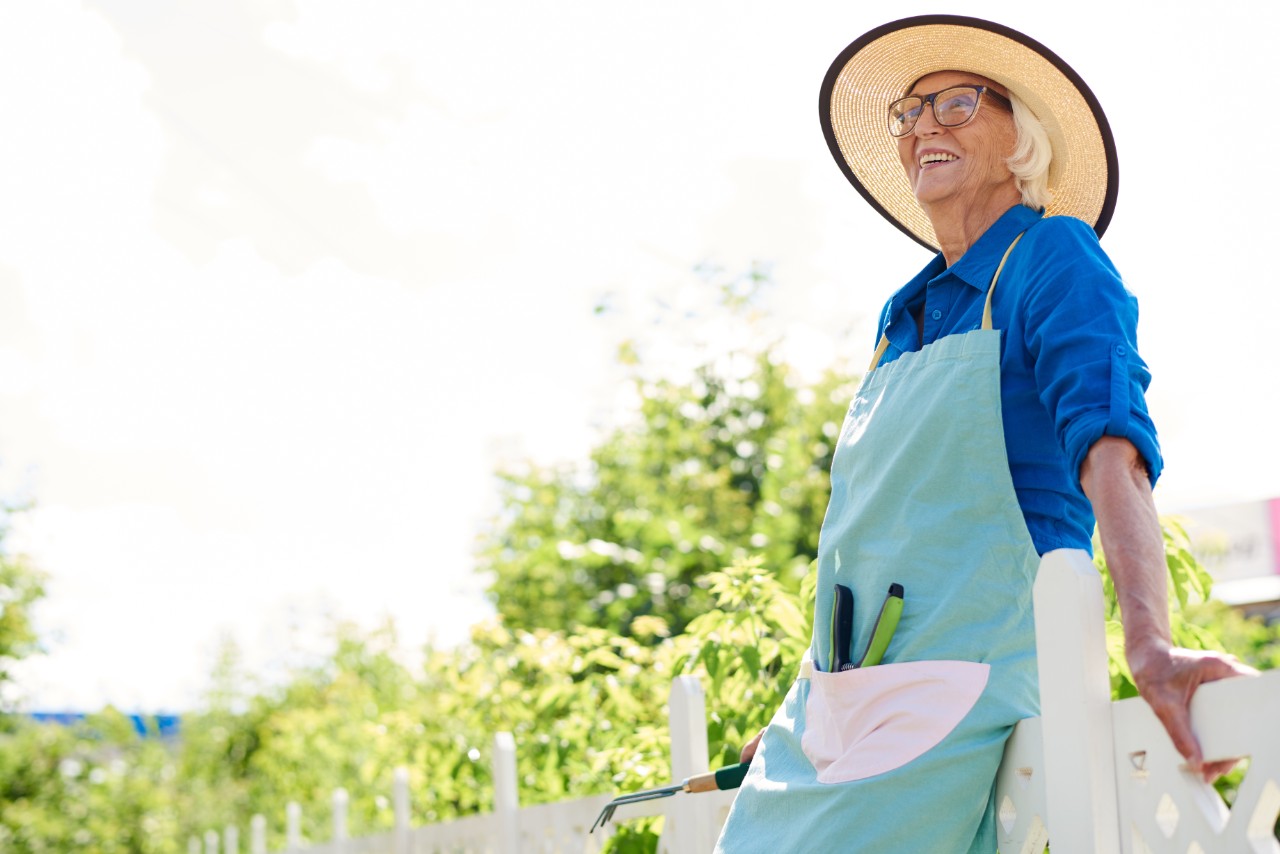
Gardening as a hobby is blossoming around the world. Already reaching new heights before COVID-19, the pastime has since sprouted skyward as housebound horticulturists-in-the-making continue to cultivate backyard plots, patios, planters and window boxes. Leading the way are seniors, who have long enjoyed the pleasures and reaped the benefits of gardening. In fact, gardening is the second most popular physical activity after walking among older adults.
If you haven’t yet discovered the wonderful world of gardening, read on to learn about what you stand to gain by getting your hands dirty. Plus, come away with seasonal growing tips.
Or perhaps you’re thinking about downsizing from a house or condo but don’t want to give up your favourite activity? Then read on to learn about gardening made easy at a retirement residence.
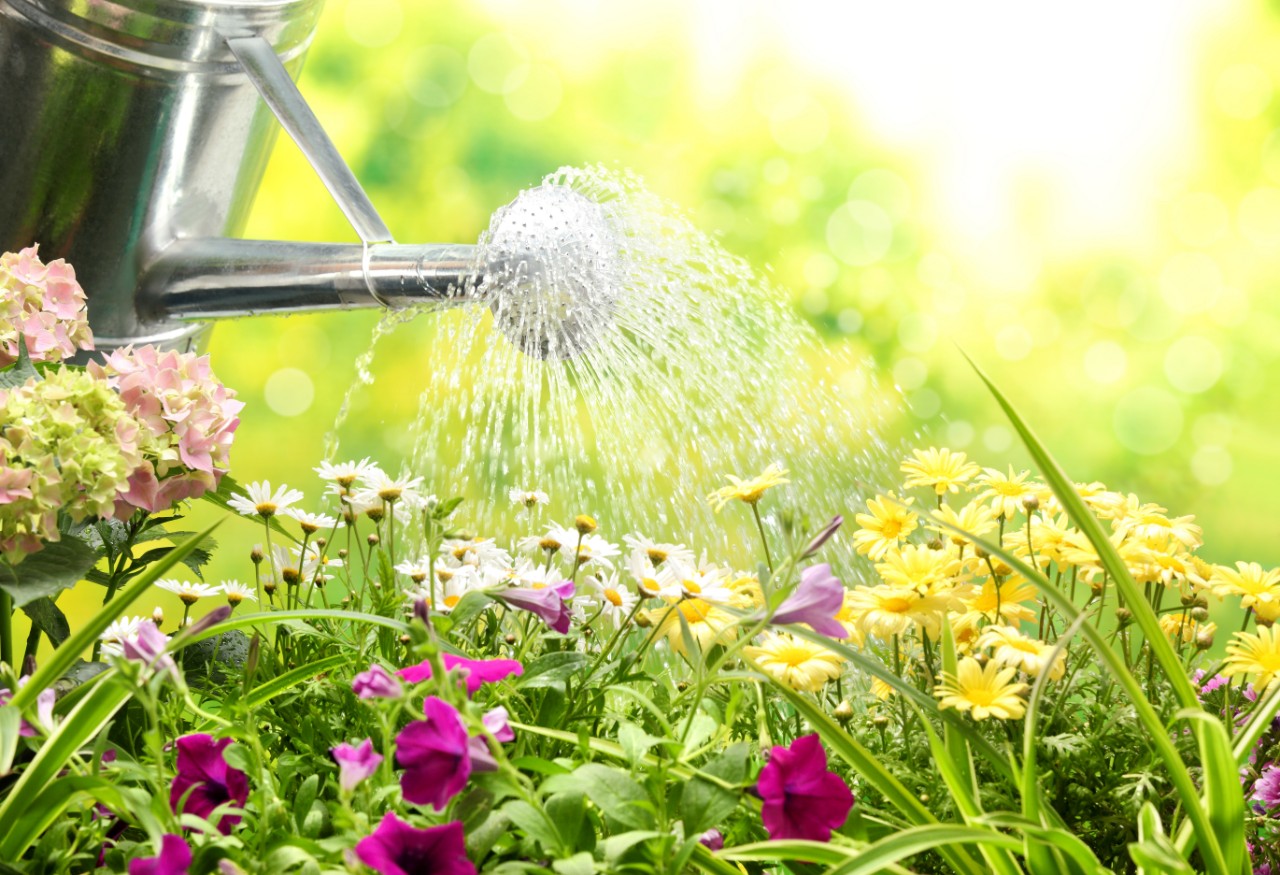
Benefits of gardening
Science shows that gardening can improve seniors’ overall health, quality of life, physical fitness and social connectivity. Here’s the dirt on why tending plants is good for you:
- An excellent source of exercise. It’s long been known that regular exercise helps maximize longevity, mobility and functionality among older adults. Gardening calls for a range of low- to moderate-intensity physical activities, from digging and planting seedlings to weeding and pruning. Seniors who routinely perform these tasks can potentially meet the Centers for Disease Control and Prevention’s recommendation of at least 30 minutes of exercise most days of the week.
- Reduces vitamin D deficiency. Vitamin D is especially important for health and well-being among the elderly, but our bodies tend to produce less of it as we age. Exposure to sunlight while gardening can help counter that deficiency, which bodes well for bone health (including osteoporosis) and the immune system.
- Lowers stress and promotes relaxation. Studies have found that walking or working in a garden setting can reduce seniors’ stress and restore blood pressure and attention.
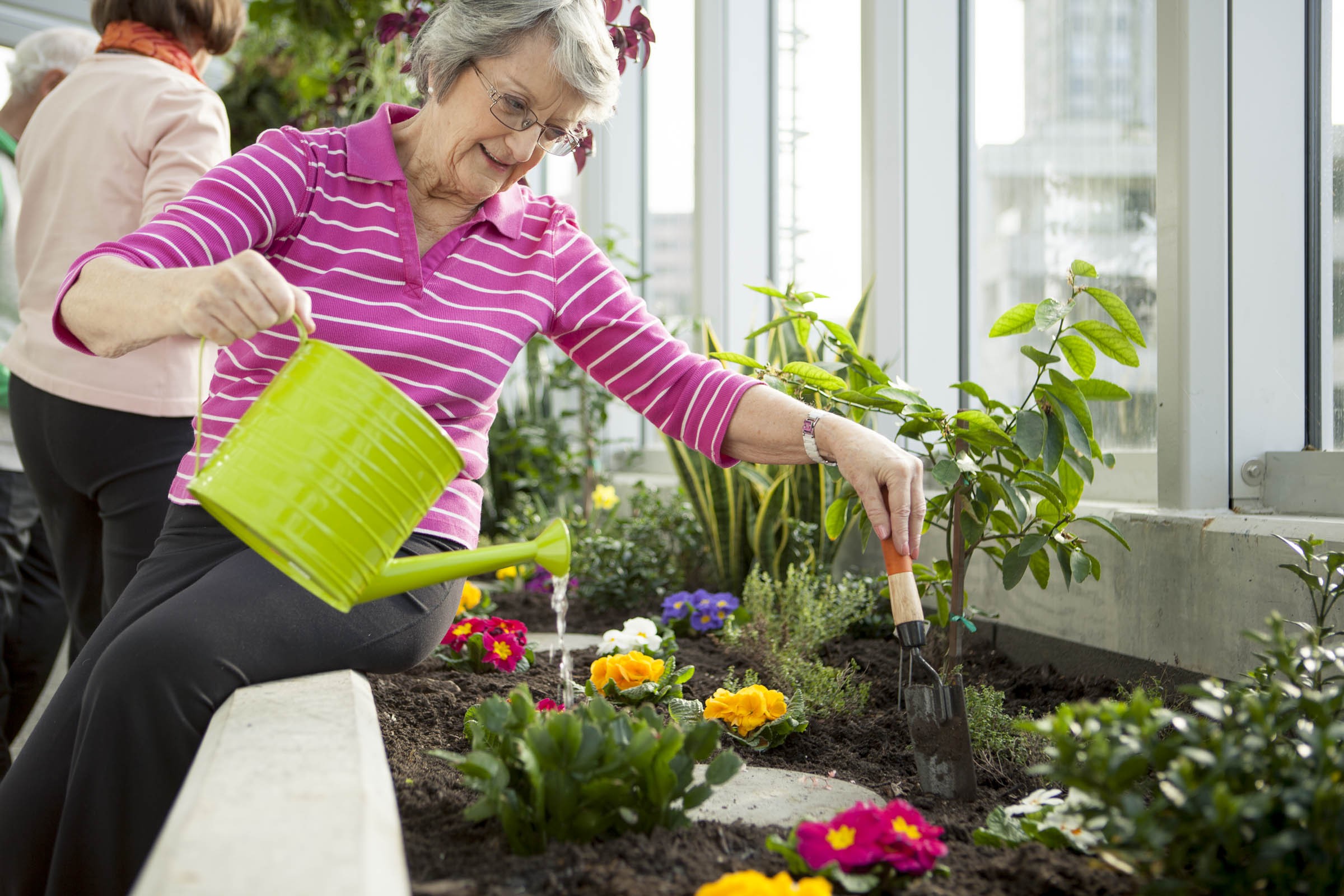
- Boosts confidence and feelings of accomplishment. Watching the seeds you sow grow into bright blooms, climbing vines or tasty fruits and vegetables is highly satisfying and rewarding. As is sharing your bounty with loved ones and friends. Indeed, seniors who garden report a sense of achievement, heightened creativity and greater appreciation for nature.
- Improves memory. Performing just 20 minutes of garden tasks has been shown to improve memory and stimulate brain nerve growth.
- Increases social interactions. Older green thumbs find that gardening not only connects them with nature but also with like-minded seniors. In particular, participating in a community garden or garden club can instill a sense of belonging, ownership and commitment – important considering the negative impacts of loneliness and lack of activity among older adults.
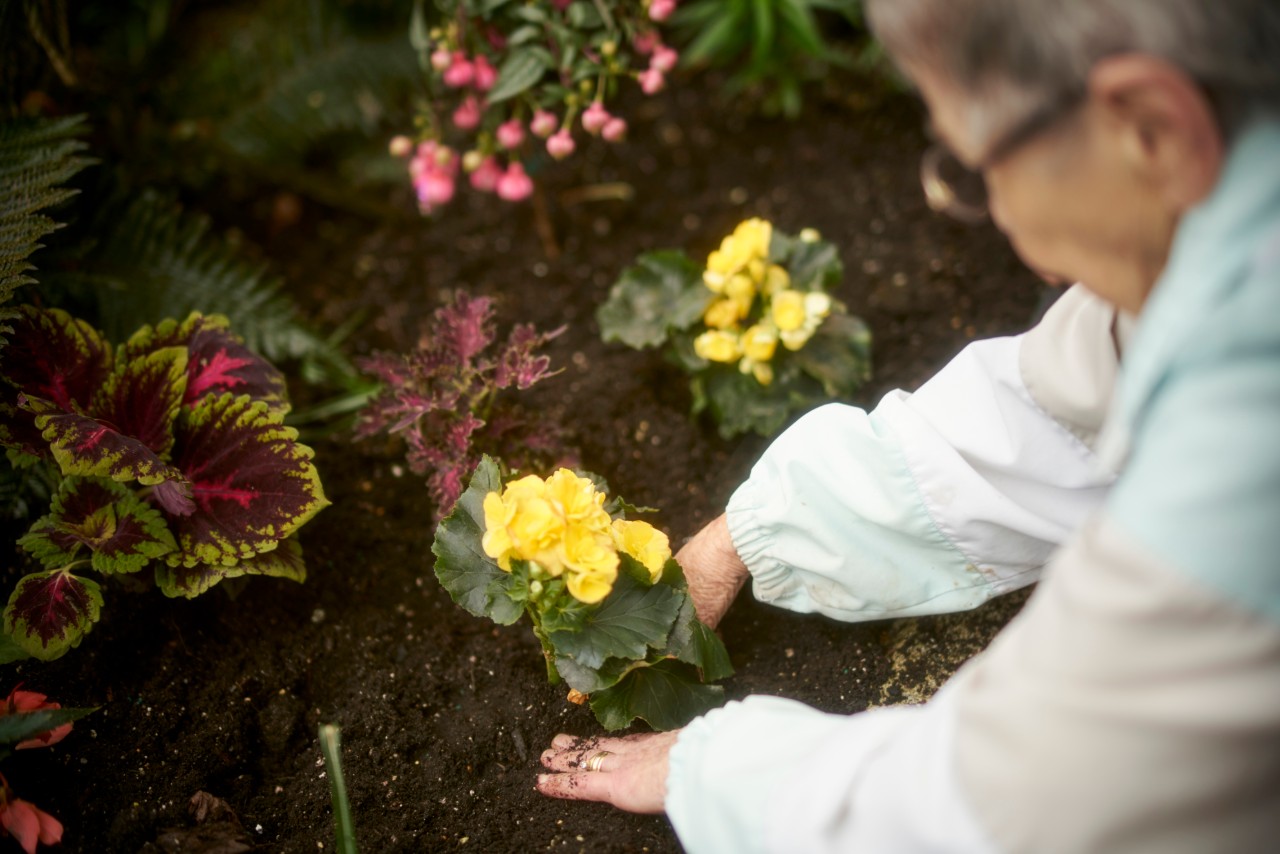
Gardening in a retirement residence
Speaking of gardening clubs, that’s one of several perks open to seniors at PARC Retirement Living. From tours and plant shopping sprees to hanging basket and floral arrangement sessions, these resident-led groups inject fun and comradeship into the gardening experience.
Budding green thumbs also have access to PARC’s ergonomic raised garden beds (think less bending), set among lush manicured grounds and patio spaces. Planting and picking herbs for PARC’s chef-prepared meals is a fine way to spend an afternoon here too.
Needless to say, if you’re thinking about moving into a retirement residence, you don’t have to leave your gardening gloves behind. In fact, residents can bring cherished plants from their previous living arrangement to their new home at PARC!
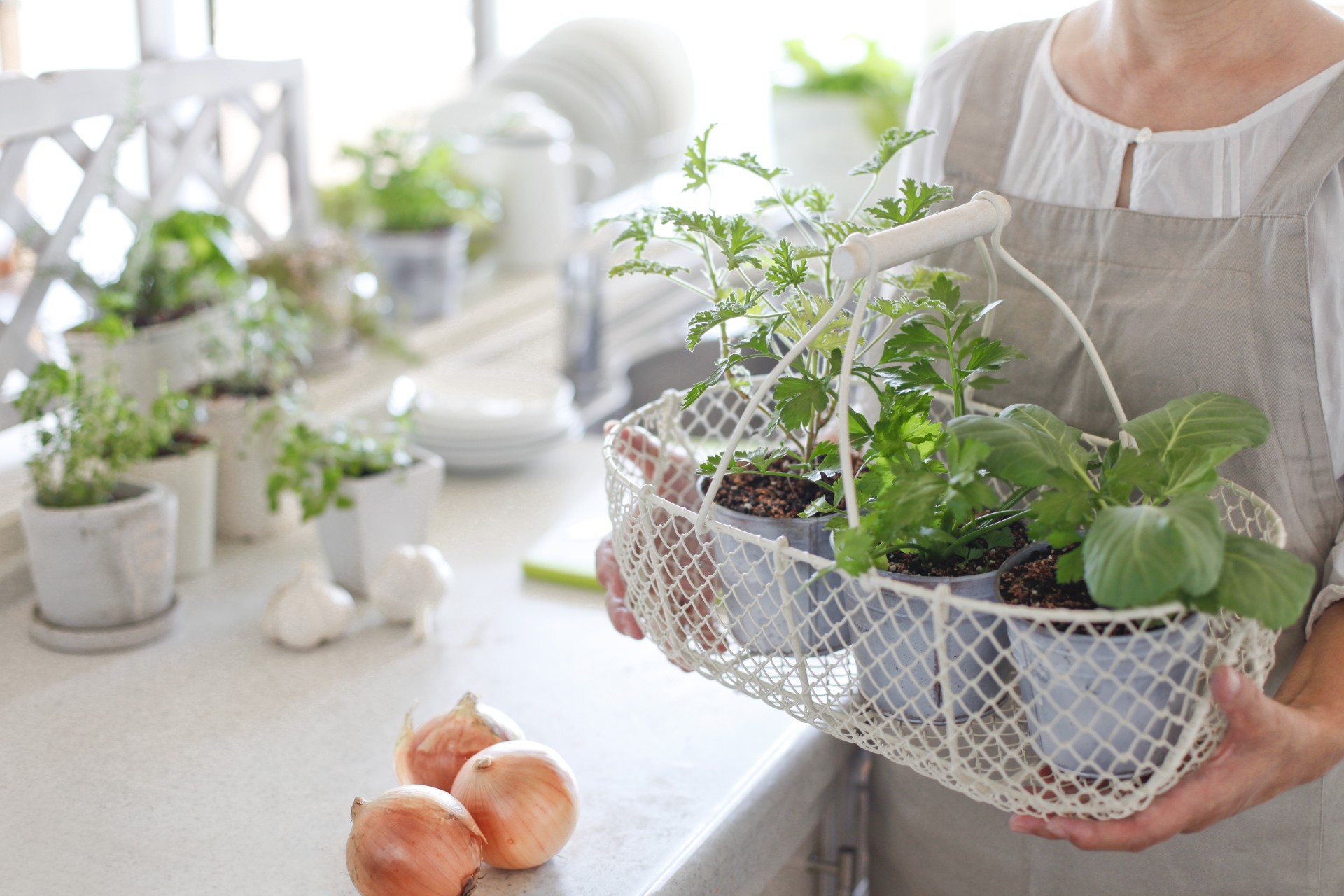
Fall and winter planting tips from seniors in-the-know
The peak growing season is behind us, but considering all the benefits mentioned above, why not maximize them by gardening year-round? Following are seasonal tips from plant-savvy PARC residents to help get you started:
- Continue planting outside. If you’re fortunate to live in a mild climate, such as in B.C.’s Lower Mainland, look forward to al fresco gardening into fall and beyond. As Summerhill PARC resident Pat says, this time of year is perfect for massive plantings of cherry chrysanthemums – easily available and often in containers ready for the balcony. She adds that winter can hold pleasant surprises: “I even had a rose bloom at Christmas because it was in a sunny spot in a sheltered corner.”
- Winterize your garden and plants. Preparing outdoor spaces for the cooler months ahead can involve a range of tasks, from weeding and mulching to composting dead annuals and bringing tender plants inside.
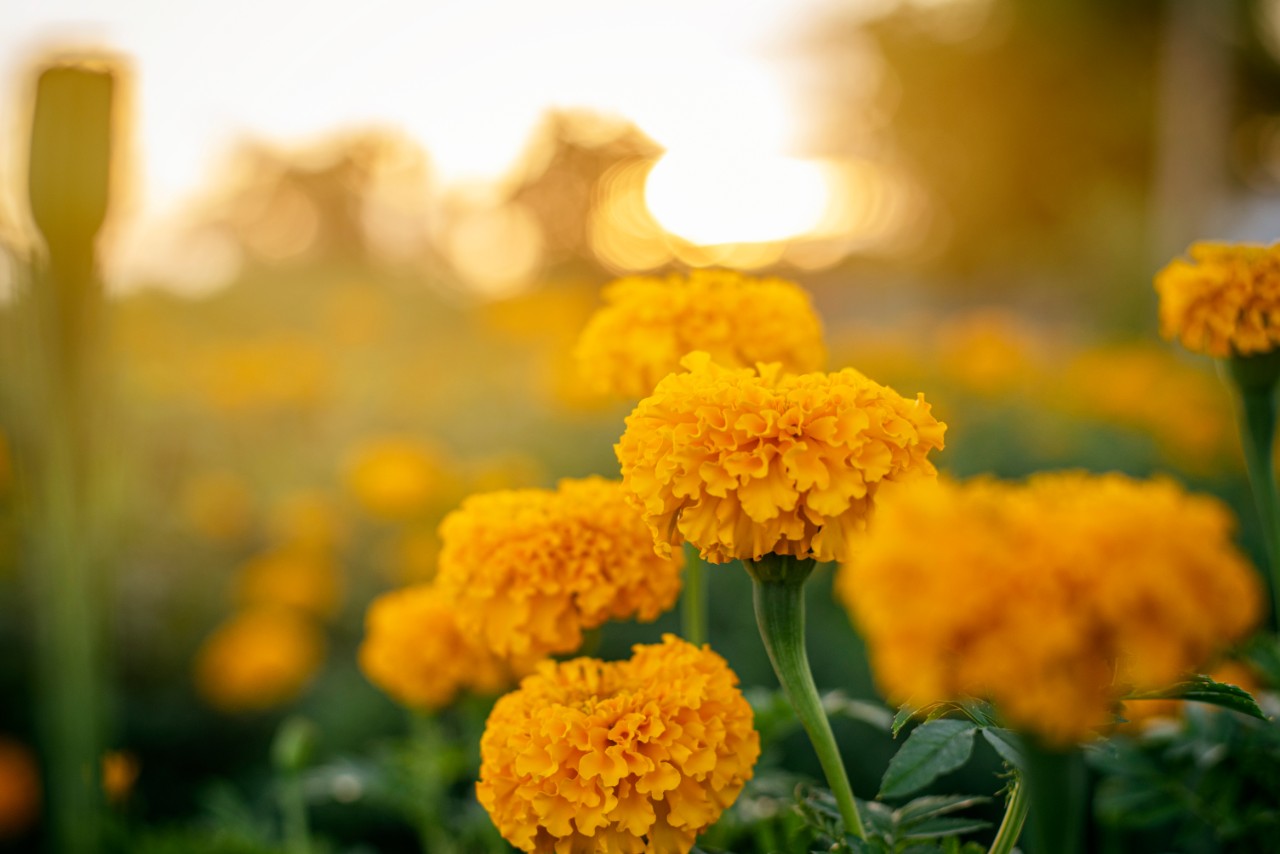
Geranium cuttings planted in pots and tubers like begonias should be stored in a greenhouse over winter, says Mulberry PARC resident Virginia, adding that “now is a good time to also check supplies needed for the coming season, such as garden stakes, fertilizers and soil mixes, and make sure the garden tools are clean and sharpened.”
- Harvest fall and winter bounty. If you planted hardy crops of kale, carrots and beets in the summer, enjoy harvesting them throughout fall and winter on the west coast. If you’re new to gardening, be sure to mark these summer plantings on your 2021 calendar for year-round garden-fresh fare.
- Sow spring bulbs. Fall is also ripe with opportunities to get a jump on spring blooms. Plant snowdrop, tulip, iris and other bulbs now for successive bursts of colour from early February to June. And give those bulbs and other plants a boost, advises Summerhill PARC garden club member Donna, by digging compost – banana peels, eggshells, coffee grounds – into the soil throughout winter. “That way come spring,” she says, “your soil will be nutrient rich and you won’t need to purchase fertilizer.”
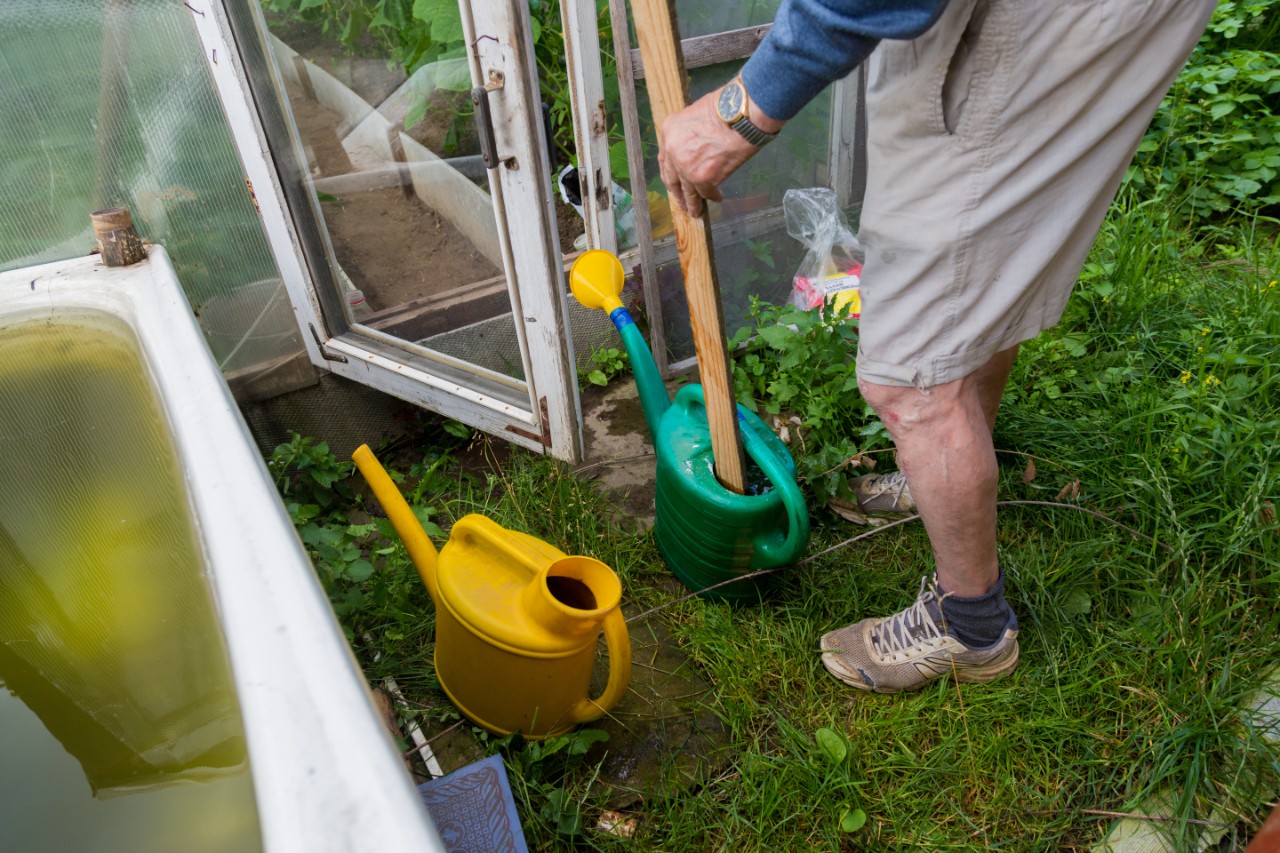
- Give indoor gardening a go. No matter where you live, indoor gardening provides homegrown greenery throughout the year. From simple potted succulents, spider plants and herbs to compact grow kits and garden towers, there’s an option to suit your space and preferences. You can also grow annuals, vegetables and ornamental plants from seed inside in winter, then transplant the seedlings outside in spring.
- Keep safe by choosing senior-friendly container beds, tools and equipment. “As we age,” says Pat at Summerhill PARC, “the fact that one’s garden can be closer to the door and higher than the ground is a big plus.”
- Lastly, know that you’ll learn along the way. Read, ask around, experiment and have fun. Be calm and grow on. After all, as a BBC article suggests, gardening could be the hobby that helps you live to 100.
Learn more about PARC and its gardening opportunities by booking a tour today.

